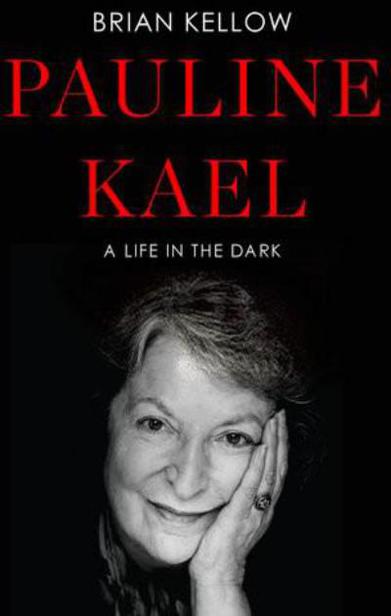
Pauline Kael
A Life in the Dark
کتاب های مرتبط
- اطلاعات
- نقد و بررسی
- دیدگاه کاربران
نقد و بررسی

Starred review from September 5, 2011
Relentlessly outspoken, unafraid of challenging idols and embracing the lowbrow and the overlooked, New Yorker film critic Pauline Kael, who died in 2001, proves a formidable, however natural, subject for Opera News columnist Kellow (Ethel Merman). He handles this difficult, unsympathetic personality with an admirable evenhandedness, considering that Kael cultivated as many detractors as admirers with her honest, gut-provoked reviewing. Born in 19TK to Polish Jewish immigrants who tried their luck running a chicken farm in Petaluma, Calif., before moving to San Francisco, Pauline was a crack student, deep reader, and eventual philosophy student at Berkeley, her early critical skills honed in the fledgling Berkeley Renaissance of the 1940s, with critics R.P. Blackmur and James Agee as early influences. From a stint as codirector of the Berkeley Cinema Guild with her then husband, Edward Landberg, Kael segued naturally into radio (KPFA) and freelance journalism, championing the New Wave and attacking the fashionable “auteur theory.” Her first book, I Lost It at the Movies (1965), established her reputation as the “saltiest” reviewer around, leading to her opening salvo at the New Yorker with an enthusiastic review of Bonnie and Clyde (1968). The old guard, like editor William Shawn, never warmed to her, but the young and iconoclastic loved her. In his fluent, immensely readable study, Kellow fairly represents Kael’s tendency to hyperbole (writing of Barbra Streisand or Last Tango in Paris) as well as hurtful ad hominem (George Cukor’s Rich and Famous; Shoah).

October 1, 2011
The first biography of arguably the most influential and controversial film critic at a turning point in cinema history. Pauline Kael (1919–2001) was a study in contradictions: a farm girl (albeit from an unusual community of Eastern European Jews in Petaluma, Calif.) and proud Westerner who became film critic for the most urbane of Eastern magazines, the New Yorker; an outspoken critic of the auteur theory who faithfully championed several auteurs of the 1970s, including Peckinpah, Altman, Scorsese, Coppola and de Palma; and an acolyte of high art who wrote most passionately about "trash" that hit her in the gut. A generous nurturer of younger writers, she could turn cold or even brutal if they didn't act according to her plans for them. With her daughter Gina (who declined to participate in the book), Kael was dependent to the point of being an obstacle to her career and romances. But Kael's life outside of the movies is background to the narrative, as it seems to have been for Kael herself as she lived it. "For Pauline," writes Opera News features editor Kellow (Ethel Merman: A Life, 2007 etc.) writes, "being a spectator continued to be the best thing life could offer." She first came to some prominence as a movie maven in San Francisco, where she selected programs for an art house and opined on films for listener-supported radio. She was already 50 when she began writing for the New Yorker, but those two decades of her life take up roughly 75 percent of Kellow's book. Her influence owes probably most to her intensely personal writing style and her identification with and advocacy for the movie audience. Kellow performs biographical magic, telling her story mostly through her most famous (and notorious) reviews of some of the landmark films of the '60s and '70s: Bonnie and Clyde, M*A*S*H, Last Tango in Paris, Nashville, Jaws and Star Wars to name a few. Like Kael's own books, this bio is a page-turner.
(COPYRIGHT (2011) KIRKUS REVIEWS/NIELSEN BUSINESS MEDIA, INC. ALL RIGHTS RESERVED.)

June 15, 2011
Features editor of Opera News, Kellow is also author of Ethel Merman: A Life and The Bennetts: An Acting Family, an interesting background for someone writing about one of the most influential film critics ever. Note that the Library of America will simultaneously publish The Age of Movies: Selected Writings of Pauline Kael (750p. ISBN 9781598531091. $35).
Copyright 2011 Library Journal, LLC Used with permission.

Starred review from October 1, 2011
From the late 1960s to the early 1990s, Kael was the foremost movie critic of the day. From her enviable position at the New Yorker, she issued gutsy opinions on all significant cinematic releases, which were eagerly anticipated by the moviegoing public while dreaded by a nervous film industry. For a biography to do justice to a complex personality and a great mind such as Kael's, extensive research must be matched by acute perception. That requirement is fully, even joyously, met here. The theme developed in this sensitive treatment is that Kael was highly intelligent, of course, but what propelled her to the top rank of movie critics was her mature critical acumen founded on an attachment to movies that began at a very young age. Raised on a California farm by Jewish immigrant parents who left the East Coast for better opportunities, Kael then lived in San Francisco, where she experienced a life-altering, or life-defining, introduction to movies. Her world expanded further as a student at Berkeley, but a subsequent foray to New York to inaugurate a professional life came to no real fruition. A return to California proved comfortable and beneficial, for she achieved her life dream: she became a movie critic. A return to New York initiated a slow climb to celebrity status from her base at the New Yorker. Kellow fleshes out these major stages as well as formative minor ones in a greatly revelatory portrait that will stand as the definitive one.(Reprinted with permission of Booklist, copyright 2011, American Library Association.)

























دیدگاه کاربران